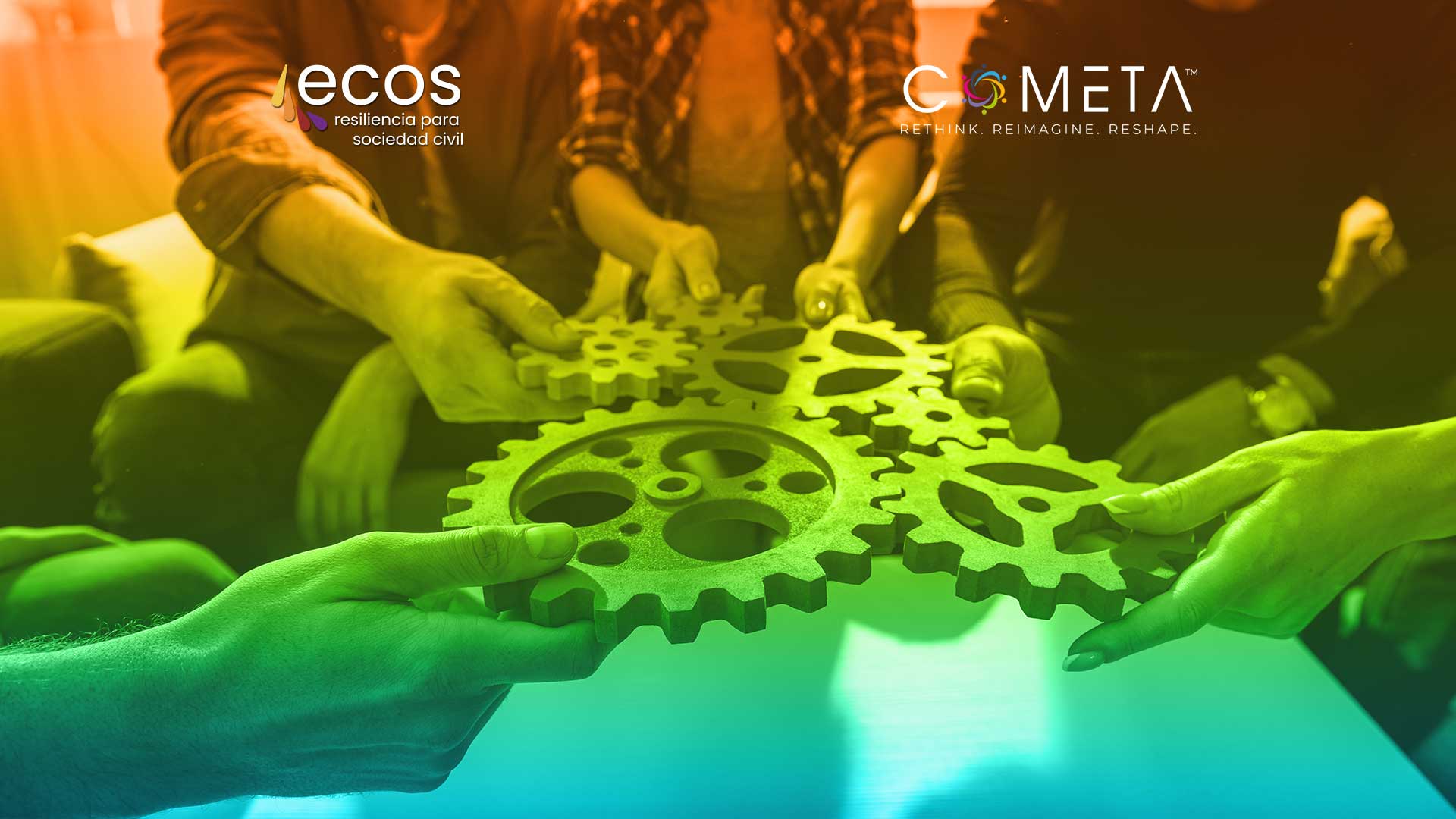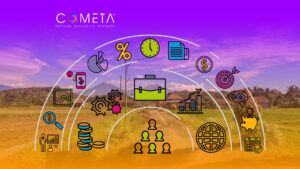In October 2023, COMETA started the capacity building of facilitators on strategic thinking (FOFA in Spanish acronym). We implemented the Theory of Change (TOC) methodology with civil society organizations in Central America, a region where the closure of civic space is increasing, complicating the provision of support processes.
COMETA is commited to capacity building of facilitators.
Our unwavering commitment is to promote support processes from the Global South for the Global South. Therefore, we seek to strengthen the strategic thinking capacities of facilitators in the region including potential external consultants and allies who can support civil society organizations in their countries with a deep knowledge of the context and its challenges.
The capacity building was aimed at residents of Central America, especially Indigenous and/or Afro-descendants, who had experience facilitating processes and workshops for civil society organizations and knowledge of the region’s socio-political context.
Why is the facilitators’ capacity building on strategic thinking relevant?
Civil society organizations in Latin America and the Global South face numerous challenges, making institutional strengthening a key requirement. However, not everyone can provide strengthening processes suitable to these organizations’ contexts and ensure a solid methodology.
Thanks to this facilitator capacity building program, COMETA has been able to share its knowledge and methodologies in strategic thinking and reflect on how best to adapt it to the needs of organizations working in complex civic spaces.
Why would people be interested in this facilitator capacity building?
People in this facilitator capacity building go through interactive processes that create spaces for collective reflection and allow them to share their experiences through practical exercises.
They can also participate in natural processes to apply the theory and see reality’s specificities and challenges. In addition, they have spaces for mutual feedback to strengthen the process and adjust it if necessary.
FOFA stages: theory and practice
The theoretical part was taught in virtual sessions, where key elements of the Theory of Change (TOC) methodology were shared. We worked based on a fictional case so that participants could collectively build a Theory of Change. Thus, they put the theory into practice. The facilitator trainees also shared their experiences and knowledge, which turned the process into mutual learning.
The practical part is currently in progress. It consisted of people participating in authentic support processes where they could contribute from their experience to concrete cases in each stage.
We have met several challenges in this journey such as:
- The regional landscape does not allow the safe mobility of all participants or COMETA (for example, to visit or leave Nicaragua). This limits the participation of organizations that can be supported in person.
- Internet connection in some areas is very erratic. This can hinder people’s participation in virtual sessions, but also the possibility of virtually supporting regional organizations.
- The financial resources that the process requires, both for COMETA staff and the expenses for the participant’s travel to the in-person activities, can be high.
- The time involved in learning can be straining for some people and require time. People should practice as much as possible to strengthen the knowledge and skills required to carry out strategic thinking processes.
Reflection
COMETA highly values responsible and committed consultants who can support and strengthen the capacities of civil society organizations in complex contexts. Although the challenge is ambitious, the advantages of contributing to training and strengthening a community of consultants will translate into better and broader options for empowering civil society in the Global South. In addition, these processes are also ideal opportunities for the exchange of knowledge and tools.
Reimagining and redefining our facilitation processes requires us to examine the different factors that can strengthen and improve them. Therefore, we are committed to rethinking facilitation from the perspective of the people who can implement it and make an impact in their region.
We are excited to find and walk together the path that will lead us to achieve social change in the Global South from the Global South
This article is authored by Arianna Bizzoni.





